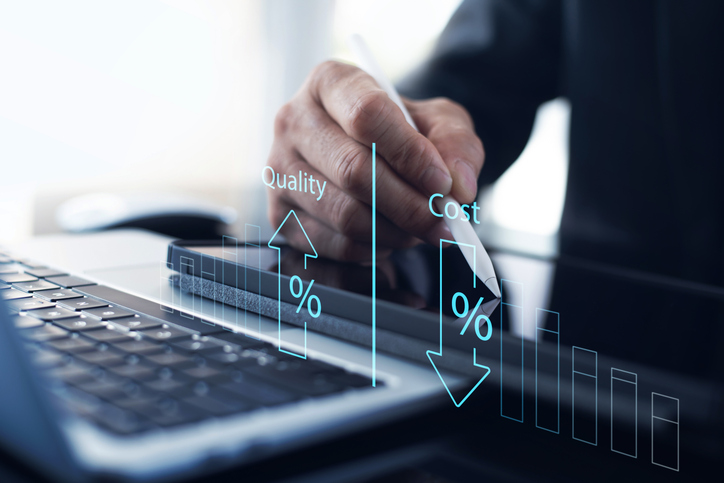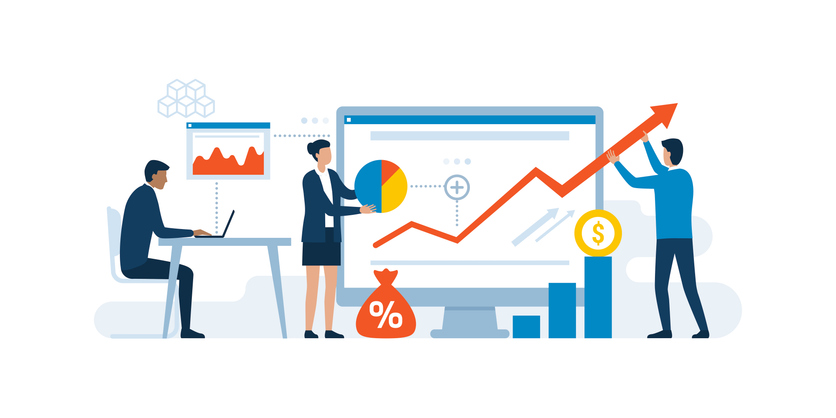Google, Amazon and Facebook all share one common denominator – they are companies storing troves of user data within their own ecosystem of operations. They serve ads, pitch products, and offer online social connections based on the user data they hold.
While data is the bread and butter for such user-centric online platforms, almost all businesses across every industrial sector are generating data which is emerging as the new-age, valuable strategic asset. Right from the standard accounting entries to the usual customer records, a huge variety of such datasets is finding increasing use in strategic business decisions, the launching of new initiatives, and expansion plans as well.
Earlier this year, The Economist’s Intelligence Unit reported that 60% of the professionals they interviewed reported that their data is generating revenue within their organizations. Around 83% said that it is making existing services and products more profitable for their firms, and around 69% believe that there is a case for starting a new business unit dedicated to developing data-related products or services.
How valuable is company data?
While companies are generating and utilising their data within their own field, it can be of great use to sell it to other companies as well. It allows a new stream of revenue for the business generating the datasets and selling them, also benefiting the company buying the data. While there can be a fear of losing the competitive edge when selling data to other companies it is possible to sell data to companies that aren’t competitors.
The Harvard Business Review cites several examples of such win-win cases. For instance, Insurance giant UnitedHealth generated $5 billion annual sales by allowing drug companies to access the huge number of claims forms it processes. The drug makers benefited by extracting key information from those datasets to assess their product utility, effectiveness, and performance relative to their competitors.
Car maker Toyota is selling its data relating to speed and position of automobiles which is generated from its GPS devices installed in cars in Japan. Its clients include municipal planning departments and corporate delivery fleets who use this traffic data for their own needs. Cargill used its data and launched a new product to sell to existing customers. By using the information about how its seeds performed in different geographical conditions, it started to offer tailored advice to customers about which products would be best for them to buy.
In this field, the opportunities can be vast. With the huge and rapidly growing ecosystem of the Internet of Things (IoT), trillions of data points are being generated with each passing day. From commonly used white goods household appliances such as washing machines and refrigerators, accessories like smart watches and printers, medical equipment, industrial machinery, and even garbage bins and automobiles are now generating troves of data that can be useful across a wide range of industry sectors.
A perfect pitch for data marketplaces
While two or more firms can benefit from trading datasets for money, their scope remains limited. An opportunity exists for a dedicated “data marketplace,” where all interested data generating firms can host their data in a secure manner and sell it to (non-competing) firms. Such a data marketplace would also offer integrating multiple datasets which can be immensely useful. For example, data regarding water hardness in a region can be sourced from a water purifying manufacturer, while electricity consumption patterns can be sourced from the power distributor.
Combining these two datasets (and others) can help smart city planning initiatives to a greater extent than the present-day methods which are largely based on raw predictions.
A peek into leading data marketplace projects
Kaggle, an online platform for predictive modeling and analytics, offers a Datasets service where one can host, discover, analyze and share open data belonging to a variety of categories. Quandl is another web-based marketplace for financial, economic and alternative data that sources it from more than 500 providers and caters to the needs of more than 250,000 investment professionals belonging to the financial industry.

Figure 1
Beyond the online services running on the web, blockchain offers a unique platform to host, manage and retrieve such datasets in a secure and efficient manner. Owing to its decentralised nature of operations, it allows the data owner to be in full command of their offerings. A couple of initiatives have been launched in this space.

The SciDex MarketSpace, aims to emerge as decentralised, secure data marketplace focused on exchanging scientific data. Harnessing the power offered by a combination of blockchain technology, artificial intelligence and natural-language processing, it works by subsidising and incentivizing the various blockchain participants to create, share and sell data. It supports a rewards system which pays the native SciTokens to users for their contributions, loyalties, and services on the SciDex MarketSpace.
IoT Chain (ITC) is another blockchain platform that aims to emerge as a data marketplace. Securely collecting and hosting the data points consensually shared and sold by the IoT device owners, ITC builds datasets which can be purchased by the interested parties. It allows for the users to have complete control over data in accordance with data regulatory laws and attempts to solve the IoT security issues.
Another blockchain-based IoT device platform IOTW also supports the sale of data by device owners and banks on using the limited processing power available in commonly used white good appliances like refrigerators and air conditioners. In the process, the data that is generated by these devices helps IOTW emerge as a data platform where device owners can willingly host, sell, and share it to manufacturers and other third parties.
A great start, that may need time to evolve
The business of such big data is indeed big – as it has the potential to be a game changer not only for the internal benefit of businesses, but also for external selling to consensual partners generating new revenue. While large corporations hoarding troves of data have used it internally, the marketplace model for capitalising data can benefit entities of all sizes and aid in macro-level activities such as town planning and demand-supply management as well.







